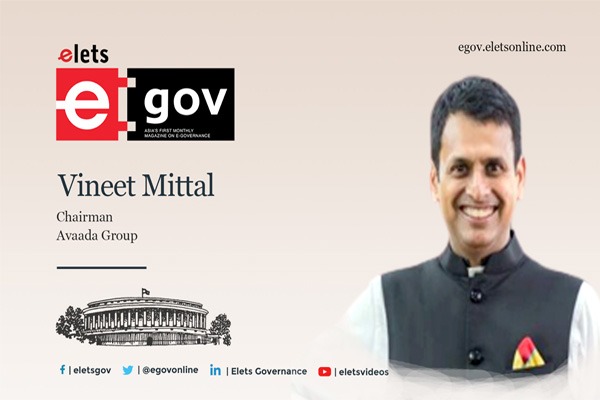
The clock is ticking, and as we are on the cusp of global warming, limiting the earth’s temperature to 1.5 degrees Celsius, we must act immediately within ~78000 hours. Businesses around the world are preparing to combat the ongoing climate chaos by announcing net-zero and carbon-neutral commitments. Rising temperatures and unpredictable weather patterns are forcing us to rethink what we are doing wrong.
Corporate actions are monitored under ESG targets to practice responsible behaviour to protect the environment. Gone are the days when companies were recognised for retaining their investors, now it is all about achieving their ESG goals. A sustainable world is the outcome of sustainable development strategies and implementation, and a rapid transition from coal to renewables by 2050, for a Sustainable India will truly be achieved together as a nation.
India’s climate change roadmap to achieve a smooth transition from a coal-based economy to a clean energy economy is to transition the power sector in a state-by-state decision on an hourly time scale by 2050. It is suggested that some key states could fully transition to sustainable energy by 2035, while certain coal-dependent regions like Uttar Pradesh, Odisha, and Gujarat can achieve 100% green energy as early as 2040. According to these estimates, India will reach its renewable energy targets at least 10 years ahead of the ambitious national target. To achieve this goal, the rapid transition to clean energy must be fully supported by policy makers, global investors, and other stakeholders.

Reshaping Policies
It is time for the government to use public investment and regulation to immediately scale up clean energy technologies to lower costs, meet universal climate goals, and boost economies worldwide. Based on global energy policy over the past three decades, to replicate the success of the transition to wind hybrid, and solar energy, governments must use investment, tax, and regulation (ITR) policies, not just provide a level- playing field for different types of technological advances in the sector.

By allocating appropriate investments, governments should also seek to give clean technologies an advantage over fossil fuel-based processes. Moreover, decisive government action in each carbon emitting segment to make clean technologies affordable and accessible will help not only the environment and the economy, but also businesses to thrive by achieving their ESG goals. ESG assessment helps companies quantify the intensity of their pollution and reminds them that it is the responsibility of companies to act responsibly. It is also a good basis for business decisions, as investors increasingly value ESG factors as an investment criterion.
India Inc. Advantage
The effects of fossil fuel-driven industrialisation have already put the future health of our planet at risk. Businesses have contributed greatly to the problem of greenhouse gas and carbon dioxide emissions that now threaten our life expectancy. When companies realise that the shift to sustainability outweighs the initial costs such as production, storage, and transportation costs, they have the opportunity to use all the energy that is abundantly provided from renewable sources every day.
Every hour, the earth receives enough sunlight to meet the energy needs of every person on the planet for a year. India has recognised the potential of such a powerhouse and has installed a solar power capacity of more than 50 GW (as of August 2022), including both ground-mounted and rooftop systems. A similar approach is needed for green hydrogen and green ammonia to become reliable sources of electricity generation.
India’s largest energy companies have already recognised this goldmine of emerging green energy sources and have pledged substantial investments in the sector to make the country Atmanirbhar. Apart from helping India in its fight against climate change and contributing to the achievement of the UNs Sustainable Development Goals, the thousands of millions of euros of investment will also give the companies an advantage in the long run over those who did not foresee the future of the renewable energy market.
India is one of the fastest-growing green energy markets in the world. The Honourable Prime Minister Shri Narendra Modi has been very categorical about his commitment to renewable energy. He has also shared India’s gift of ‘Panchamrit’ – the five nectar elements
– to the world to fight climate change.” One of the most important elements of ‘Panchamrit’ is the increased use of renewable energy. India aims to meet 50% of its energy needs through renewable energy sources by 2030.
The adoption of green energy sources has the potential to make businesses economically sustainable. We believe in the philosophy of giving back more than we take in. We have only ~78,000 hours, or just over a decade, to turn back the clock to 1.5 degrees Celsius and bring climate change under control with concerted efforts. The world before us and the world after us will be different. That is our promise, and we will achieve it together.
Views expressed by Vineet Mittal, Chairman, Avaada Group
Be a part of Elets Collaborative Initiatives. Join Us for Upcoming Events and explore business opportunities. Like us on Facebook , connect with us on LinkedIn and follow us on Twitter, Instagram.











